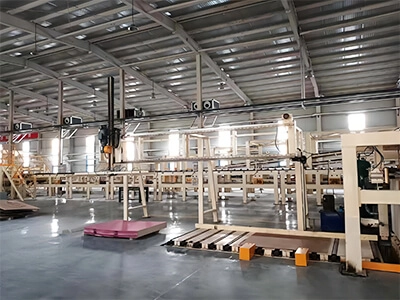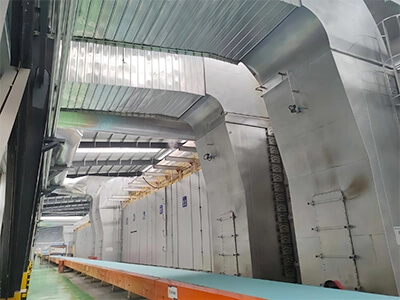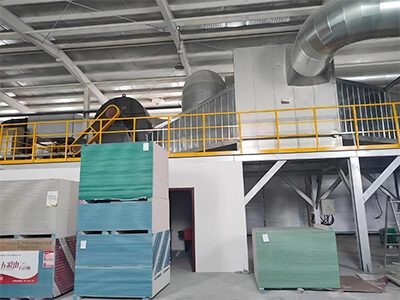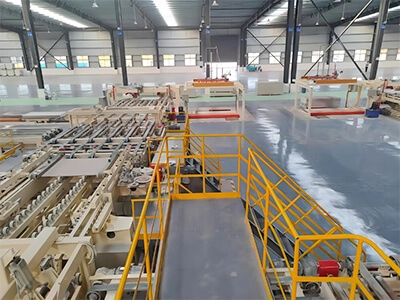
Gypsum Board Machine Factory

Paper Faced Gypsum Board Machinery

Produce Gypsum Board

Paper Faced Gypsum Board Production Line
Gypsum board production line process
Gypsum board production line Batching section
The materials in the silo are transported through horizontal and vertical conveying equipment, and are delivered to the belt scale through a rigid impeller feeder. Excess materials are sent back to the silo through conveying equipment such as return conveyors and elevators.
Raw materials such as building gypsum, modified starch, coagulant, and glass fiber (used in the production of waterproof and fire-resistant paper gypsum boards) are measured separately and mixed in a spiral mixer before being continuously fed into a vertical mixer.
Add foaming agent to the storage tank. When in use, the foaming agent and moisture are respectively sent to the foaming device by the metering pump, and compressed air is introduced to produce stable foam, which is sent to the vertical mixer.
After the adhesive is prepared in the tank, it is fed into the spray ports on both sides of the forming station, and the adhesive tape is sprayed onto both sides of the paper gypsum board. The upper and lower face protection paper is transported to the paper rack by an electric hoist.
Gypsum board production line Forming section
The formed paper is sent to the forming station through a paper storage machine, tensioning device, scoring device, and correction device, and the gypsum slurry flows from the vertical mixer to the formed paper. After passing through the paper storage machine, tensioning device, deviation correction device, and adhesive, the forming paper machine is sent to the forming station. The molding machine is a plate type with adjustable thickness. The forming machine gathers upper paper, lower paper, and gypsum slurry to squeeze and wrap them into a specified thickness of board. The formed gypsum board belt is smoothly transported to the cutting machine by the solidification belt conveyor and conveyor roller to cut according to the set length. Then, it is fed into the Type 1 horizontal conveyor by the acceleration roller conveyor, and then fed into the dryer after being close to the roller conveyor.